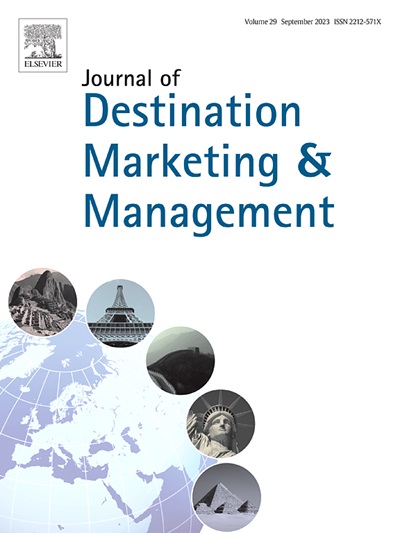GSTC certification and local communities. Evidence from the perspective of successful first mover DMOs
IF 7.4
2区 管理学
Q1 HOSPITALITY, LEISURE, SPORT & TOURISM
引用次数: 0
Abstract
The paper discusses three first mover destination management organisations (DMOs) that have successfully involved local communities in achieving a common goal: Global Sustainable Tourism Council certification (specifically, the GSTC Destination Criteria, GSTC-D). The research aims to analyse the role played by the DMO in obtaining GSTC-D certification and the activities subsequently initiated to keep it. How did DMOs successfully achieve certification and what did and are they doing to involve the community? Exploratory research has been carried out to answer this question. The study adopts a qualitative approach and focuses on three destinations which were among the first in the world to obtain GSTC-D certification. Desk analysis and in-depth interviews with the DMOs took place between June and November 2022. Three main research focuses (all from the perspective of the DMOs involved) have been outlined: why and how GSTC-D certification was obtained, the challenges of maintaining GSTC-D certification, expectations post certification. The research confirms the pivotal role of DMOs and their capacity to work within non-hierarchical multi-stakeholder contexts. GSTC-D certification should be understood as a factor which facilitates and strengthens community-centred participatory processes in fragmented environments. The research adopts an inductive approach to analyse three DMOs that have successfully obtained GSTC-D. The research contributes to the wider scientific debate on the new role of DMOs and the identification of factors that foster participation in community destinations. Focusing on the role of DMOs, the research tackles a topic which has not yet been subject to in-depth analysis from a managerial perspective.
GSTC认证和当地社区。来自成功的先发dmo的证据
本文讨论了三个先行者目的地管理组织(DMOs),它们成功地使当地社区参与实现了一个共同目标:全球可持续旅游委员会认证(具体来说,是GSTC目的地标准,GSTC- d)。本研究的目的是分析DMO在获得GSTC-D证书方面所起的作用,以及随后为保持该证书而开展的活动。dmo是如何成功获得认证的?他们做了什么以及正在做什么来让社区参与进来?为了回答这个问题,进行了探索性研究。该研究采用定性方法,重点研究了世界上最早获得GSTC-D认证的三个目的地。研究人员在2022年6月至11月期间进行了桌面分析和对dmo的深入采访。本文概述了三个主要的研究重点(都是从所涉及的dmo的角度出发):为什么以及如何获得GSTC-D认证,维护GSTC-D认证的挑战,认证后的期望。该研究证实了dmo的关键作用及其在非分层多利益相关者环境中工作的能力。GSTC-D核证应被理解为在分散的环境中促进和加强以社区为中心的参与进程的一个因素。本研究采用归纳的方法分析了三个成功获得GSTC-D的DMOs。该研究有助于就dmo的新作用进行更广泛的科学辩论,并确定促进社区目的地参与的因素。着眼于dmo的作用,该研究解决了一个尚未从管理角度进行深入分析的主题。
本文章由计算机程序翻译,如有差异,请以英文原文为准。
求助全文
约1分钟内获得全文
求助全文
来源期刊
CiteScore
18.60
自引率
3.60%
发文量
46
审稿时长
43 days
期刊介绍:
The Journal of Destination Marketing & Management (JDMM) is an international journal that focuses on the study of tourist destinations, specifically their marketing and management. It aims to provide a critical understanding of all aspects of destination marketing and management, considering their unique contexts in terms of policy, planning, economics, geography, and history. The journal seeks to develop a strong theoretical foundation in this field by incorporating knowledge from various disciplinary approaches. Additionally, JDMM aims to promote critical thinking and innovation in destination marketing and management, expand the boundaries of knowledge, and serve as a platform for international idea exchange.

 求助内容:
求助内容: 应助结果提醒方式:
应助结果提醒方式:


